Category: Terminal Illness
Articles about terminal illnesses that one typically sees and cares for on hospice.
Articles about terminal illnesses that one typically sees and cares for on hospice.

Dementia is a complex and challenging condition that affects millions of individuals, often requiring specialized care. When it comes to supporting a loved one with dementia, understanding the types of healthcare providers available is essential. Each specialist brings a unique set of skills and expertise to the table. In this article, we will delve into the various types of healthcare providers for dementia and help you understand when to consider one specialist over another.
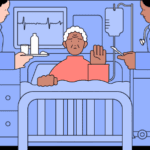
Discover the truth behind the myth that medications can keep terminally ill patients alive indefinitely. This article explores the psychological factors behind this belief and its consequences while providing compassionate strategies to cope with the reality of losing a loved one while ensuring quality end-of-life care.

Medications like anticoagulants, antidepressants, and NSAIDs can cause harm to hospice patients. Learn how to balance comfort and safety with individualized care.
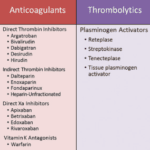
Anticoagulants can prevent blood clots but also cause bleeding risks for terminally ill patients. This article explains why these medications should be regularly reviewed for deprescribing, outlining factors like prognosis, preferences, and palliative care options to consider when making informed, compassionate choices aligned with the patient's goals.

This article discusses the importance of quarterly medication reconciliation for terminal patients and their families. It explains the benefits, such as improving patient safety, quality of life, symptom management, and the challenges and solutions. It also addresses the need to re-evaluate certain medications, like donepezil and memantine, for patients with dementia as their disease progresses.
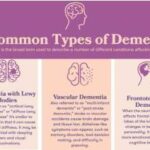
Explore the five most common types of dementia: Alzheimer's, Vascular, Lewy Body, Frontotemporal, and Mixed. Learn about their unique characteristics, symptoms, and progression. Understanding these differences is crucial for proper diagnosis, treatment, and care of individuals affected by dementia.
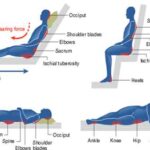
This guide provides practical strategies for preventing and managing pressure injuries in terminally ill patients. Learn how to assess risk, optimize nutrition, reposition properly, choose support surfaces, and care for the skin. Get recommendations for home, hospice, and hospital settings, as well as pain management and infection control. Empower yourself with evidence-based tips to improve your loved one's comfort and quality of life.

Delve into the world of blood-based biomarkers for dementia detection. This article examines the science behind these tests, their potential to revolutionize early diagnosis, and the complex ethical considerations surrounding their use. Discover how these tests might shape the future of Alzheimer's care and research.
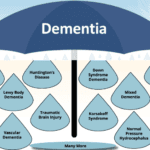
Mixed dementia combines symptoms of multiple types of dementia, presenting unique challenges for patients and caregivers. This article explores the complexities of mixed dementia, its symptoms, diagnosis, and treatment options. Learn practical tips for providing compassionate care and support to loved ones affected by this condition.

You may think that CPR is a miracle that can save anyone’s life, but that is not always the case. CPR is not practical for terminally ill patients, and it can cause more harm than good. In fact, studies show that only about 5% of terminally ill patients who receive CPR survive to leave the hospital. Many of them suffer from brain damage, broken ribs, or infections because of CPR.
This article aims to help you understand the truth about CPR for terminally ill patients. We will debunk ten common myths you may have heard or believed about CPR and provide you with accurate and reliable information. We will also help you make informed and respectful decisions about CPR for your loved one based on their wishes and values.

Explore practical solutions for managing disappearing clothing in dementia care. Learn about iron-on name labels, simplified clothing choices, and the importance of family-facility collaboration. This guide offers practical tips to ensure your loved one with dementia always has the right clothes, reducing stress for patients and caregivers.

A groundbreaking skin test has emerged as a potential game-changer in the early detection of Parkinson's disease and related disorders. This article explores the science behind the test, its accuracy, and the ethical implications of early diagnosis. Discover how this innovative approach could revolutionize Parkinson's treatment and patient care.

Navigating the intricate path of hospice care involves a nuanced understanding of the unique needs of terminally ill patients. The frequency and nature of nursing visits are crucial in ensuring optimal comfort and support during the final stages of life. This article will delve into the variations in hospice nursing visits, explicitly comparing the last two weeks to the preceding six months.

Dementia affects memory, thinking, and behavior, presenting challenges for patients and caregivers. This article discusses the best products for managing these challenges, enhancing quality of life for those with dementia.

Explore the Dementia Care Essentials book series, a comprehensive collection of nine guides addressing vital aspects of dementia care. From managing hallucinations to optimizing nutrition, these books provide invaluable insights for caregivers, healthcare professionals, and families navigating the challenges of dementia

Discover essential strategies for managing adrenal insufficiency crises in terminally ill patients. Learn about symptoms, risk factors, and crucial interventions to ensure patient comfort and safety. This guide provides valuable insights for hospice nurses and caregivers in this critical condition.

Discover how the GUIDE model can be applied in hospice and palliative care, offering improved support for dementia patients and their caregivers. Learn best practices and implementation strategies.

Navigating the prognosis of six months or less for hospice care can be daunting. Learn how to understand, prepare for, and make the most of this crucial time.

Discover the commonalities between dementia and autism spectrum disorders (ASD), crucial for caregivers navigating symptoms. Access support resources for comprehensive care.

Discover essential insights and practical advice for family members and caregivers of individuals with traumatic brain injury, focusing on understanding, supporting, and managing challenges effectively.

Do you worry about a loved one's memory issues or odd behavior? Learn the key differences between senility and dementia, their symptoms, causes, and ways to manage or prevent them. Understanding these conditions can help you offer better support and care for those affected.
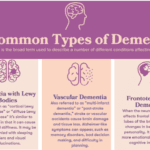
Dementia encompasses various brain disorders affecting memory, thinking, and behavior. This comprehensive guide delves into the five most common types: Alzheimer's, Vascular, Mixed, Lewy Body, and Frontotemporal Dementia. Gain insights into their distinct symptoms, underlying causes, diagnostic methods, and tailored care approaches to support individuals and caregivers navigating these challenging conditions.
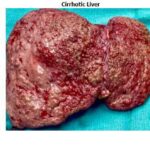
Discover crucial information about alcoholic cirrhosis of the liver with ascites in this comprehensive guide for caregivers and family members. Learn about symptoms, diagnosis, treatment options, and practical tips for providing care. Understand what to expect in the terminal stage and find resources for emotional support during this challenging journey.
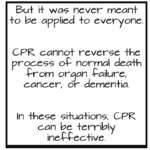
Choosing between full code and DNR for terminally ill patients can be challenging. This article explains the differences, benefits, and drawbacks of helping caregivers and families make informed decisions.